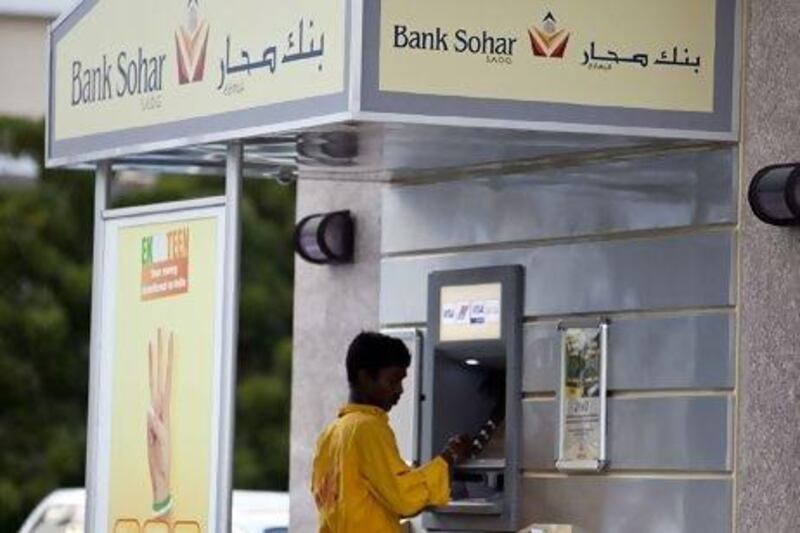Oman's Bank Dhofar has opened merger talks with Bank Sohar, potentially creating the second-biggest bank in the sultanate.
The merger would create a lender with a combined US$10 billion in total assets, more than any other Omani lender except BankMuscat.
The banks' shares climbed, with Bank Dhofar's stock up 1.3 per cent to 0.379 Omani rials each, and the smaller Bank Sohar's shares gaining 1.9 per cent to 0.209 rials each.
Bank Dhofar "expressed interest and resolved to commence discussion with Bank Sohar to explore the possibility of merger between the two banks, subject to interest of other party, satisfactory due diligence and subject to obtaining shareholders' approval and regulators approvals," it said in a statement following a board meeting on Monday, declining to give further details.
Bank Sohar could not be reached for comment.
Oman's banking sector has become fragmented as a result of the creation of new Islamic lenders and has consolidated during the past two years after lower-than-expected growth in a market which is still considered underbanked.
Omani lenders "are facing challenges in terms of picking up market share," said Kanaga Sundar, a financial analyst at Gulf Baader Capital Markets in Muscat, who has a "neutral" recommendation on both Bank Sohar and Bank Dhofar.
"The total number of banks has increased, but the banking penetration levels are still low," he said. Excess liquidity in the Omani banking sector and margin pressures were being felt across the board, Mr Sundar added.
The merger would allow for synergies across the corporate lending businesses of both banks, he said.
In the past year Omani regulators have permitted the creation of two new Sharia-compliant lenders, Bank Nizwa and Alizz Islamic Bank, backed by Abu Dhabi's Aabar Investments, alongside an Islamic banking unit opened by BankMuscat.
Bank Sohar republished a recent report from Fitch Ratings to the Muscat Securities Market, affirming the ratings agency's BBB+ rating on Bank Sohar with a "stable" outlook.
Fitch cited the bank's level of bad debts, one of the lowest among the Omani banking sector, but also said that Bank Sohar's "relatively low capitalisation" could become problematic were it to expand rapidly.
Oman's banking sector has already begun consolidating. HSBC merged its Omani assets with Oman International Bank in April last year, creating the second-biggest network in the sultanate under thename HSBC Bank Oman.
Bahrain has been the most active market for bank mergers in the region. Elaf Bank merged with Capivest and Capital Management House in January in a rare three-way bank merger.
Bank Al Khair and Khaleeji Commercial Bank announced they had formed a steering commitee last month after beginning merger talks in May. In the UAE, a market which has 51 banks serving a bankable population of about 2 million, analysts have cited similar pressures to consolidate.
First Gulf Bank last month purchased Dubai First, a credit card provider, from the troubled investment company Dubai Group.





